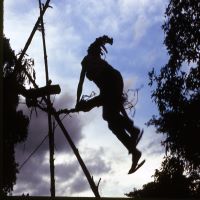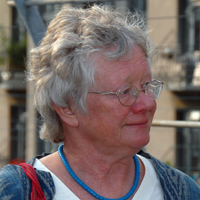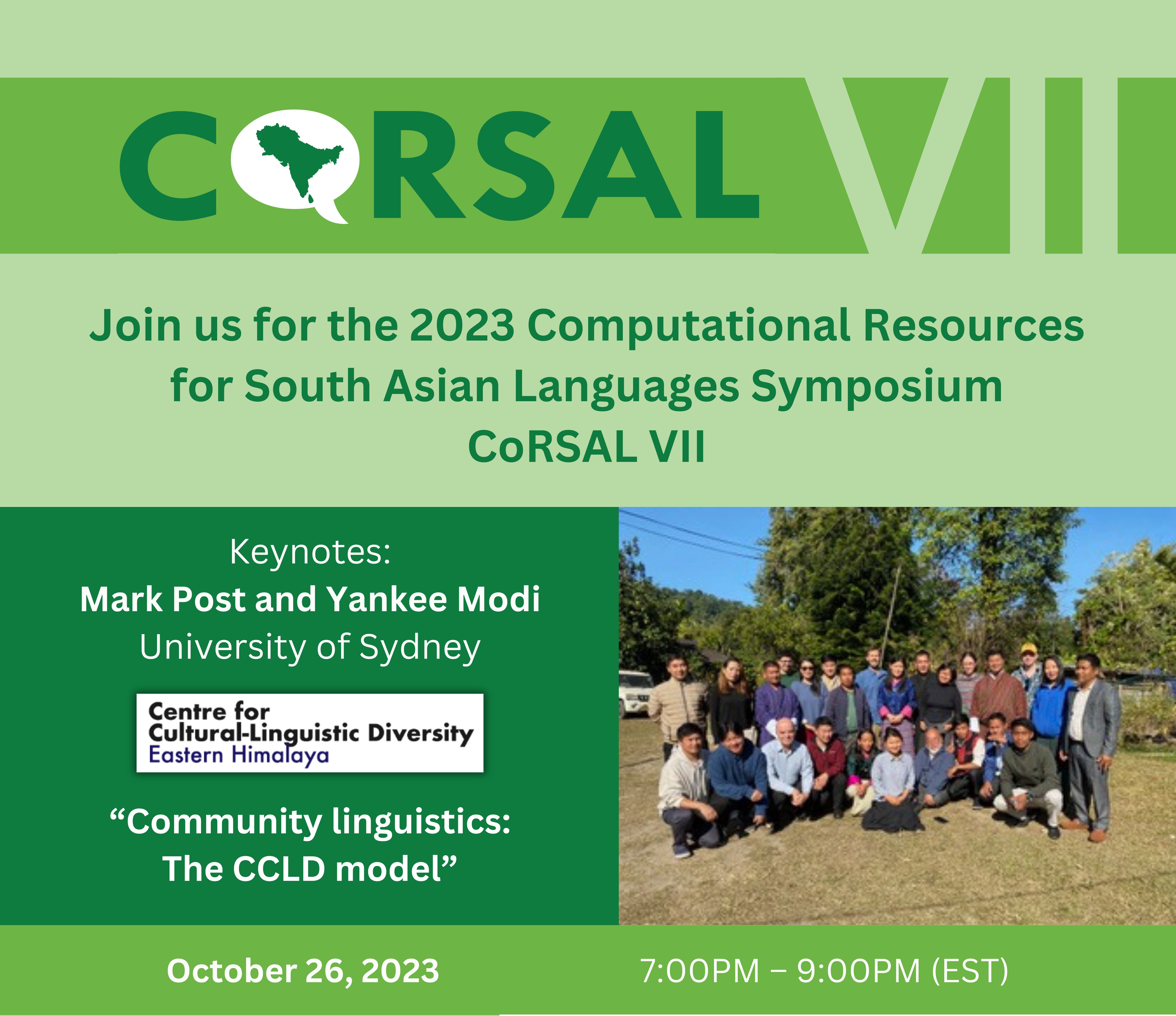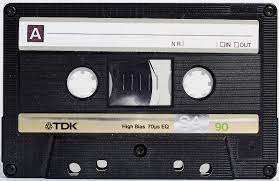This homepage is focused on the material from professor Inga-Lill Hansson’s lifelong research on the Akha language (modern and archaic), stories, rituals texts, and songs. |
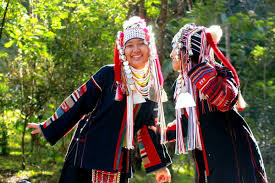 |
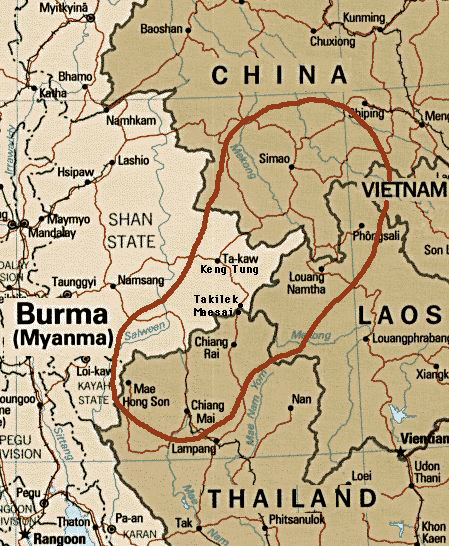 |
||
LEFT: |
||||
Linguist Jose worked with Inga-Lill from May 18th 2024Linguist Jose Benavides came to Copenhagen / Malmö to help Inga-Lill do transcription and glossing of The Death Ritual and other texts using the SW-pack FLEx. He also helped Inga-Lill and Søren search through her Mac and find more already transcribed material. He is halfway through his Ph.D. studies of linguistics at Indiana University, IU Linguistics department, USA. The Akha PeopleThe Akha are an indigenous people who traditionnaly live in small villages at higher elevations in the mountains of Thailand, Yunnan Province of China, Myanmar, Laos, and Vietnam. Total population is apprx. 750,000 distributed more or less like this: Thailand 110,000, Yunnan Province of China 500,000, Myanmar 20,000, Laos 100,000, and Vietnam 20,000. The traditional form of subsistence for the Akha people has been, and remains, agriculture. The Akha have traditionally employed slash and burn agriculture. A number of Akhas now live in cities. The Akha people speak the language Akha** which is a language in theSino-Tibetan language family. No documented script for this language existed before the 1950s. Since then, foreign linguists, missionaries and indigenous activists have devised a number of writing systems. Akha religion—zahv—is often described as ancestor worship, but emphasizes the Akha connection with the land and their place in the natural world and cycles. The Akha put a heavy emphasis on genealogy. An important tradition involves the recounting by Akha males of their patrilineal genealogy. Information partly based on information from Giulio Ongaro. The Death Ritual, A selected Akha storyThe Death RitualThe Akha have a rich orally based literature and ritual texts handed down from generation to generation through specially and severely trained priests. Inga-Lill worked with the priest Abogo who knew by heart hours and hours and hours of recitation of texts. They fill up thousands of pages in Inga-Lill's notebooks. We have here focused on the long ritual used for death ceremonies.
Find also a combined Akha-English version of the first 60 pages of the Akha Death Ritual, scanned, pdf, 3,9 MB. The Death Ritual in DanishSmall excerpts of the text have been translated into Danish: Excerpt 1: This text is describes how the message about the death is brought to the village. [Section 2, 93.2] Excerpt 2: This text describes a birth in the village. Excerpt 3: The text desribes the life around the dancing place in the village. [Section 3, 94.78] Some Akha songs
Hear them from the "Search function". Inga-Lill Hansson
Inga-Lill is a linguist specialized in classic Chinese and Akha* language and ritual texts. See her full CV: List of her publications and papers: Inga-Lill is determined to make her work available to the Akha people and researchers in e.g. linguistics, anthropology, and religion. At present a group of friends help her make her full research material available for the outside world, and more concretely to make her many pages of the Akha Death Ritual ready for publication. She expects all users of the material to live up to good research ethics, thus referring to her and mentioning various phimas*** (transmitters of ritual texts, especially the phima Abogo) and shamans*** who acted as informants / consultants for her research into Akha. Our Akha projectOur ultimate dream is that Akha people, culture, and language stay vibrant and healthy in the future. Our contribution to this end is to ensure: That all the thorough and comprehensive material from Inga-Lill Hansson’s research is preserved. That is the linguistics description of the language and the transcripts of traditional stories of Akha people. And that all this is set at the disposition of Akha people, schools, Akha politicians, and researchers and also in general is made available to linguists, anthropologist, and the broad public. We are a number of friends who have followed Inga-Lill Hansson and her research from back in the 1970’es. Guidelines for transcription of the Death Ritual (in Danish)This subpage is only for project members helping in the transcription phase. KLIK HER
Notes:* Disclaimer: This homepage is managed by the 'Akha project group' who are friends of Inga-Lill Hansson. We are not researchers of Akha language or culture, so that some mistakes in the text may be expected. ** The Akhas that Inga-Lill Hansson has mainly studied, are the Akhas of Northern Thailand near Chiang Rai.
Akha is placed like this in the international language classification: *** Shaman and phima (Akha words):
|
Hansson’s Akha material in the CoRSAL ArchivesDirect search in the archive
Access and Introduction to the Archives
Interview with Inga-Lill Hansson
Interview with Søren Borch The CoRSAL website The Computational Resource for South Asian Languages (CoRSAL) is a digital archive for source audio, video, and text on the minority languages of South Asia. The CoRSAL project is further described on the site corsal.unt.edu from where you can also access the archives, and from where you can go into more information on publications, happenings, symposia, training, research, contact and more. CoRSAL VII Symposium, October 2023
"In the 2023 symposium VII, we will hear from our depositors about their archived materials and future plans to expand and share their collections. The symposium will be held on Thursday, 26 October 2023 from 7:00 PM – 9:00 PM (EST, i.e. Indianapolis time) via Zoom." Sørens has prepared a video for the symposium to explan in 5 minutes all about the Akha part of the CoRSAL archives: Learn here about Hansson's valuable lifetime collection of the Akha language and culture. You can read about the former CoRSAL-symposia at corsal.unt.edu/symposia. The 2023-VII'th symposium agenda will soon be uploaded to the site. To join, please register here. The signing process will inform you about the actual time at your spot in the world. As an example, at Copenhagen, Denmark, it is the 27 from 01:00 AM to 03:00 AM, i.e. in the middle of the night ;-). Examples from Inga-Lill's Akha Archives in CoRSAL
CoRSAL Social MediaThe CoRSAL Facebook group is open. You can join and follow news. The CoRSAL Twitter / X site. The CoRSAL YouTube site. The CoRSAL Newsletter / Happenings with an introduction to the latest new languages in the collection, including Inga-Lill Hansson's Akha material. Background for Inga-Lill Hansson to join CoRSALWhen we – the friends of Inga-Lill –visited her throughout the years in her apartment in Malmö, we were encircled by her research material: Hundreds of audio tapes, notebooks and research analyses. Research publications, daily life descriptions, ritual texts, folk stories, songs, and photographs. Inga-Lill retired in 2010 and did no longer have the resources to significantly improve nor further publish her research. And she had not found a researcher or a university that would take over. The menace of losing all this valuable material tormented us for many years. But now, out of the blue, a fabulous future home for all her Akha research material showed up and materialized. At the College of Information at University of North Texas (UNT), Professor Shobhana Chelliah had heard of all Inga-Lill’s material. And she immediately understood the value of it. The Computational Resource for South Asian Languages (CoRSAL) is a digital archive for source audio, video, and text on the minority languages of South Asia. Very fast Professor Shobhana Chelliah and PhD Candidate and Research Assistant Mary Burke arranged to come to Malmö, and during an intensive workshop from 3rd to 6th November 2022 it was agreed on how to proceed, interview videos were shot, and material was taken to be copied in Denmark or in Texas. Version 1 of the Akha material was on the CoRSAL website by 13th of December 2022. Akha resources in other parts of the worldI don’t have a full overview of the probably many interesting resource spots in the world for Akha language and culture. If I pick up knowledge on this, I shall try to mention it here. Akha-archive at MPI (Max Planck Institute)One very interesting archive, parallel to Inga-Lill’s archive at CoRSAL, is the archive of Friedhelm Scholz’ Akha material (1928-2000) that via Heidelberg University has ended up in a project in collaboration with Max Planck Institute (MPI) for Psycholinguistics in Nijmegen, Netherlands. While Inga-Lill’s archive comes from the hands of a linguist with quite some interesting elements for anthropologists, Scholz’ archive is from the hands of an anthropologist with quite some interesting elements for linguists. They probably supplement each other well. The Akha-archive from Max Planck Institute / Heidelberg University can be found at archive.mpi.nl/islandora/object/tla:1839_00_0000_0000_0020_D1FD_D with 1) Cassette recordings, 2) Documentation and 3) Reel to Reel recordings. The collaboration between the two organisations concerning Scholz’ Akha material is mentioned here www.uni-heidelberg.de/uniarchiv/wider_en.html Max Planck has a DOBES archive with several other endangered languages. Akha-archive at ELARDeposited by linguist Jacob Terrel, University of Hawaii. Songs of the Akha Shaman, training native speaking documenters: This amounts 6,500 verses of religious prose; all have been transcribed using the Akha orthography, and around seventy percent of the verses are accompanied by a gloss and free translation in both modern, spoken Akha and English. This is collection focuses on Archaic Akha, a code which is not mutually intelligible with modern Akha. Other materials include interviews, photographs, written texts and video related to the funeral rite as performed by the Akha Shaman. General information on the Akha-archive. Some (all?) of the Akha-files may be found at the Akha part of ELAR. ELAR and ELDP in general: Akha at 'World Oral Literature Project'An urgent global initiative to document and make accessible endangered oral literatures before they disappear without record. Website of 'World Oral Literature Project' at University of Cambridge: www.oralliterature.org/. The Akha part is called "Jacob A. Terrell: Archaic Akha, Songs of the Akha Shaman, 2009-2011" and is found here: www.oralliterature.org/collections/jterrell001.html with links to archives and access to listen to audios. More information on the project at Wikipedia: en.wikipedia.org/wiki/World_Oral_Literature_Project. Akha Heritage FoundationOregon, USA. Mission Statement: It is a comprehensive site with a large number of blogs and links to organisations etc. http://www.akha.org/ Akha Churches in ThailandACT, Akha Churches in Thailand and the history of Christian churches in the area. Lifestyle of Akhas. Photos and more. www.akha.ch Akha-English dictionaryPaul White Lewis compiled and published an Akha-English dictionary in 1968. You can find it at ecommons.cornell.edu/handle/1813/57538. You can download it as a pdf-file. Includes some introduction to Akha grammar. Akha-links from Google, Bing etcHere is my present selection (Oct 2023) of interesting links:
Other Akha researchers, communities, museums etc ?I am looking into this at present. We shall see what I find :-) Maybe “Akha Museum in Yunnan, China (artifacts, visual art, and textual material)”. Please write me if you have anything you believe might be relevant on this present website. ContactThis homepage is administered by Søren Borch. Søren M. Borch, Copenhagen, Denmark |
|||
